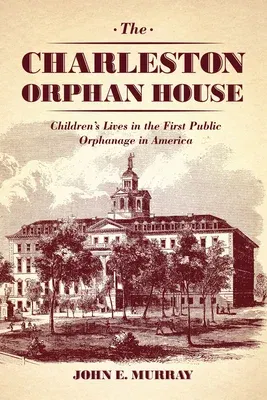John E Murray
(Author)The Charleston Orphan House: Children's Lives in the First Public Orphanage in AmericaHardcover, 3 January 2013

Qty
1
Turbo
Ships in 2 - 3 days
In Stock
Free Delivery
Cash on Delivery
15 Days
Free Returns
Secure Checkout

Part of Series
Markets and Governments in Economic History
Print Length
268 pages
Language
English
Publisher
University of Chicago Press
Date Published
3 Jan 2013
ISBN-10
0226924092
ISBN-13
9780226924090
Description
Product Details
Author:
Book Format:
Hardcover
Country of Origin:
US
Date Published:
3 January 2013
Dimensions:
23.11 x
15.49 x
2.03 cm
ISBN-10:
0226924092
ISBN-13:
9780226924090
Language:
English
Location:
Chicago, Il
Pages:
268
Publisher:
Weight:
476.27 gm